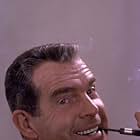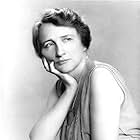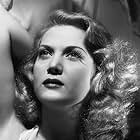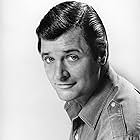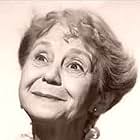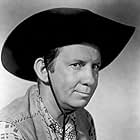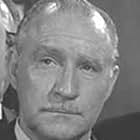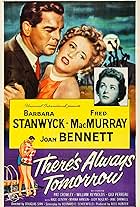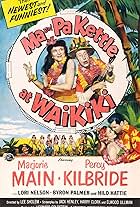This charming, lively and atmospheric sojourn into the country is one of the most famous and influential of all "rustic" films. Like "Mr. Blandings Builds His dream House" and "George Washington Slept Here", Betty MacDonald's "The Egg and I" tells the cautionary tale of a city dweller and his wife trying to establish a new life form themselves far from the city's amenities. Usually one partner is more enthusiastic about the relocation than is the other--in this case, a young wife played by Claudette Colbert--while the mate is hell-bent on leaving the city's inconveniences behind--in this case Fred MacMurray. The film has a deceptively simple plot-line. In pursuit of the goal of running an egg-producing farm, MacMurray drags his new wife into the country; the remainder of the film comprises three plot lines: 1. The way they are rooked, helped, charmed and appalled by their bucolic neighbors, especially Ma and pa kettle played for the first time on the screen my Marjorie Main and Percy Kilbride; 2. Involvements with a gorgeous neighbor (Louise Allbritton) whom Colbert thinks is a rival for her husband's affections; and 3. Difficulties with a very old and run-down physical property owing to long-term prior neglect, bad weather, etc. This bare summary of events I suggest captures the essence of the storyline rather succinctly; but it also omits the hysteria of Colbert's reactions, her distaste at first for the entire project, and the genial atmosphere of "what next" that permeates all the couple's dealings with nature, their neighbors and their own negotiations about their new marriage and the terms on which it is to be lived. Unlike many incompetent later so-called comedies, this is a true comedy--something that cannot end badly for the participants if they physically persevere; and it is quite realistic, if broadly mounted. How many other films can you the viewer recall which introduces Ma and Pa Kettle, a slinky blond egg-ranch owner, a 300 pound ladies man, a run-down chicken ranch, a college-trained hillbilly engineer and a succession of incompetent workmen? Frank Skinner provided suitable comedic music; the film was directed by veteran Chester Erskine, from a story and screenplay he adopted from the Macdonald novel along with Fred F. Finkelhoffe. The two produced also along with Leonard Goldstein, and they produced an instant classic and a box-office smash. Milton Krasner supplied a consistent cinematography, helped along by a very fine production design by Bernard Herzbrun and inventive set decorations by Oliver Emert and Russell A. Gausman. The fine cast is headed by Fred MacMurray as a believable Bob Macdonald, and Claudette Colbert, very powerful as always and only a bit too old for the part. As the rival egg rancher, Louise Allbritton is cultured, and brilliant as usual. Billy House as the amorous Mr. Reed, Elisabeth Risdon as Betty's mother, Marjorie Main, Percy Kilbride and Richard Long as the Kettles are all very much up to their parts, which in lesser hands might have turned into caricatures. others in the well-chosen cast include Samuel S. Hinds as the Sheriff, Ida Moore, Fuzzy Knight, Isabel O'Madigan, Esther Dale, Donald MacBride and John Berkes. It is hard to say enough nice things about the consistent style of this B/W treasure. What makes it work apart from the straightforward direction and the sincere professional actors I suggest is the categorical theme--Betty (Colbert) finally wanting her marriage to work, rather than her husband's equally legitimate desire to make a go of the egg ranch project he has always wanted to head, even if it means making his wife uncomfortable for a while. This is a film many admire, myself among them, and many more like even better that they admire it. It is a fine autumn film any night you want some genuinely-earned laughter.












